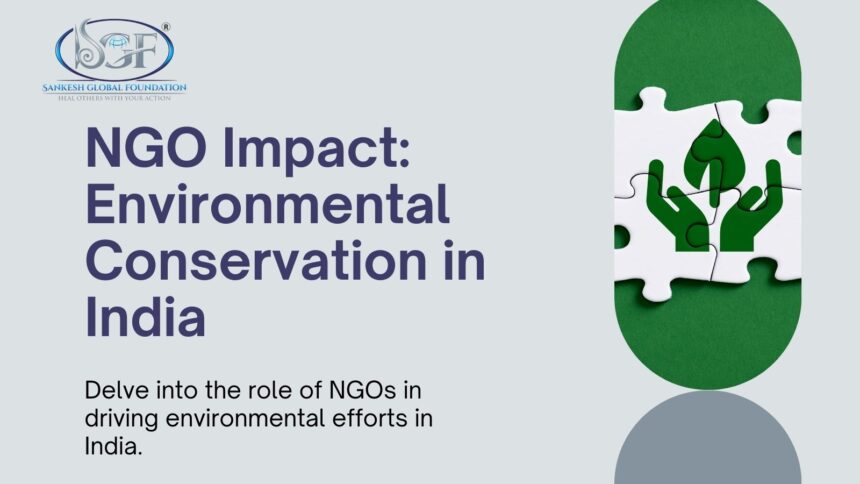In the diverse landscape of India, where environmental challenges loom large, non-governmental organizations (NGOs) play a pivotal role in spearheading conservation efforts. These organizations, driven by passion and purpose, have been instrumental in protecting India’s rich biodiversity, promoting sustainable practices, and advocating for policy changes to safeguard the environment. Let’s delve into some key initiatives and impacts of NGO organizations in India dedicated to environmental conservation.
1. Promoting Sustainable Agriculture
NGOs in India have been actively promoting sustainable agricultural practices to minimize environmental impact while ensuring food security. Organizations like Greenpeace India and the Centre for Science and Environment (CSE) advocate for organic farming, agroecology, and using renewable energy in farming practices. By conducting awareness programs, training farmers, and implementing pilot projects, these NGOs are demonstrating how sustainable agriculture can mitigate climate change, preserve soil health, and protect water resources.
2. Biodiversity Conservation
India is home to diverse ecosystems, from the Himalayan forests to the coastal mangroves. Several NGOs are dedicated to conserving biodiversity through habitat restoration, wildlife protection, and community engagement. The Wildlife Trust of India (WTI) focuses on safeguarding endangered species like tigers, elephants, and rhinoceros by working closely with local communities and government agencies. Other organizations like the Bombay Natural History Society (BNHS) conduct research, advocacy, and conservation projects to protect India’s unique flora and fauna.
3. Waste Management and Recycling
NGOs are actively involved in waste management and recycling initiatives across India. Groups like Waste Warriors and Chintan Environmental Research and Action Group are leading campaigns to reduce plastic pollution, promote waste segregation, and establish recycling facilities in urban and rural areas. Through education programs and community drives, these NGOs are changing attitudes towards waste disposal and encouraging sustainable consumption practices.
4. Water Conservation and River Rejuvenation
Water scarcity is a pressing issue in many parts of India, exacerbated by climate change and unsustainable water use. NGOs such as Tarun Bharat Sangh (TBS) and Arghyam are working towards water conservation and river rejuvenation through rainwater harvesting, watershed management, and community-led initiatives. By reviving traditional water management practices and advocating for policy reforms, these organizations are striving to ensure water security for present and future generations.
5. Advocacy and Policy Reform
NGOs actively engage in advocacy and policy reform to influence environmental decision-making at local, regional, and national levels. Organizations like the Centre for Science and Environment (CSE) and Greenpeace India conduct research, publish reports, and organize campaigns to raise awareness about environmental issues and press for policy changes. Their efforts have led to landmark decisions such as the ban on single-use plastics in certain states and the promotion of renewable energy alternatives.
6. Community Empowerment and Education
Community engagement is a cornerstone of NGO-led environmental conservation efforts in India. NGOs collaborate with local communities to build awareness, impart skills, and empower individuals to become stewards of their natural surroundings. Initiatives such as tree planting drives, eco-clubs in schools, and vocational training programs not only contribute to environmental conservation but also foster sustainable livelihoods and resilient communities.
Conclusion
In conclusion, NGO organizations in India are instrumental in driving environmental conservation efforts through innovative approaches, community engagement, and advocacy. Despite facing numerous challenges, these organizations continue to make significant strides towards a more sustainable and resilient future. By supporting and collaborating with NGOs, individuals and businesses can contribute to the collective effort of preserving India’s natural heritage for generations to come. Together, we can build a greener, cleaner, and more sustainable India.

